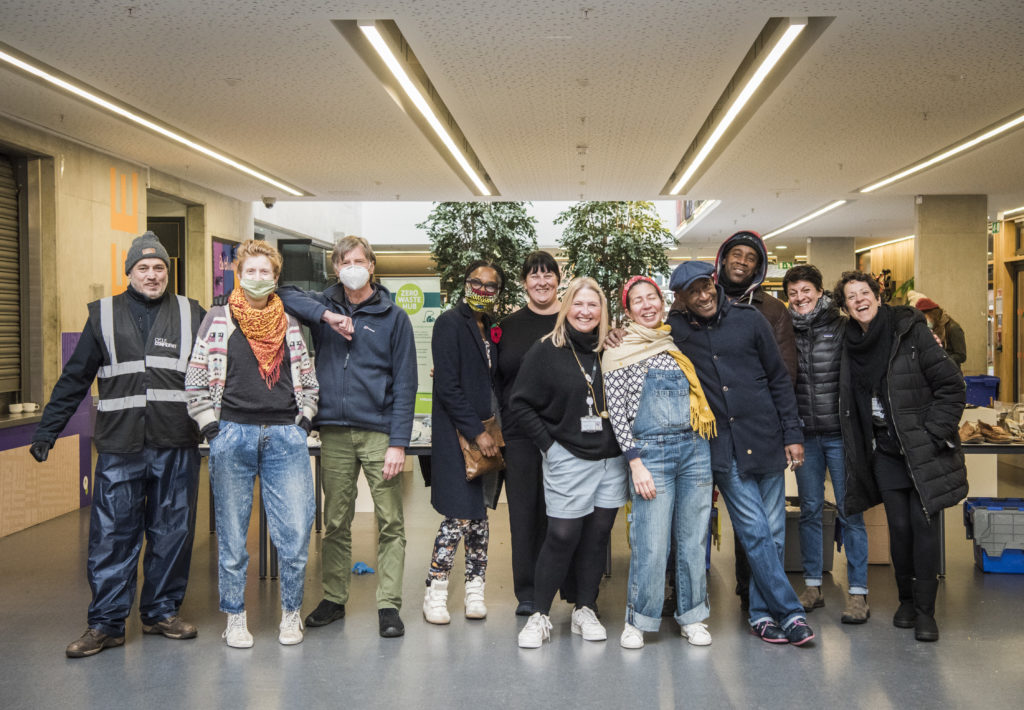Measuring Impact
For those of us who spend time at community repair events, the benefits of repairing together are obvious and intuitive. From helping us value and build each others’ skills, to saving waste and reducing our consumption of new stuff, we can see the positive impact play out in front of us. But of course we’re often asked to demonstrate this impact with data and stories for funders, media, public bodies and others. So how can we do that?
Measuring your environmental impact
Repair keeps products in use for longer. This prevents waste and reduces demand for newer products. In turn, this reduces emissions of carbon dioxide and other greenhouse gasses (measured as CO2e).
It can be fairly easy to measure this impact. The first important step is to keep good records of the items that people bring to your event, including information about type of item, the reported problem, what your repairers do to fix it and the outcome of the repair.
Once you have this information, you can use one of the following online tools to help you calculate your impact:
The Restarters Community
A free community platform that calculates the amount of waste and CO2e saved by repairs you record at events. Create a space for a repair group, access a range of group & event management features and talk to others involved in community repair. This is an open-source platform managed by The Restart Project. To learn more, get in touch with them here.
Repair Monitor
A free online tool that allows you to record items seen at repair events and estimate how much waste you’ve prevented. You can create a dedicated space for your repair group and measure your impact over time. This tool is managed by Repair Café International. To learn more, you can get in touch with them here.
Repair Cafe Wales
If you’re based in Wales, Repair Cafe Wales have developed their own tool to record repair data from events. You can get in touch with them here.
Another huge benefit of using any of the above tools is that they all contribute repair data to the Open Repair Alliance, which advocates for products that are easier to fix in the first place. By collecting, analysing and publishing data about how things break and the barriers to repairing them, members of the Alliance and Right to Repair Campaigns push for policies to make repair more accessible, affordable and simpler, saving waste and emissions on an even bigger scale.
If you don’t want to use any of these existing tools, the Open Repair Alliance has a guide on what repair data you might like to record.
Demonstrating your social impact
Social impact is notoriously difficult to ‘measure’ and the impacts that matter most may be different for each community. It’s important to think about the story you want to tell for your own community. What are the specific needs you are hoping to address and how do your events make a difference?
For example, are you hoping to help people feel more empowered to repair things themselves? Are you helping those who are more socially isolated or lonely connect with other people? Are you helping people on low/no income save money by not buying new products? Something else? Or all the above?
Depending on the kind of impact you want to record, there are a number of things you can try:
- Keep a visitors book at the entrance of your event or in the waiting area and encourage visitors to write in it. This can be a great way to record feedback and stories from the people who come to your events. You could also consider adding prompts, such as ‘tell us one thing you learned today’ or ‘is there anything you will do differently after this event?’
- Write up and share inspirational stories from your events. These could be profiles on volunteer repairers or case studies of particularly interesting or meaningful repairs.
- Take photos at your events and share them (but first make sure you have permission to do so from anyone being photographed).
- Run a short survey for volunteers or visitors to ask them about how coming to events has affected them. Make sure you keep it short and think carefully about what you want to learn when writing the questions. Could you run a follow up survey with the same people after a few weeks or months?
We can help!
Whether you're just starting a new repair group or you've been running events for a while, we're here to share our experiences and offer support. Simply get in touch with your nearest network member and let them know what you need.

